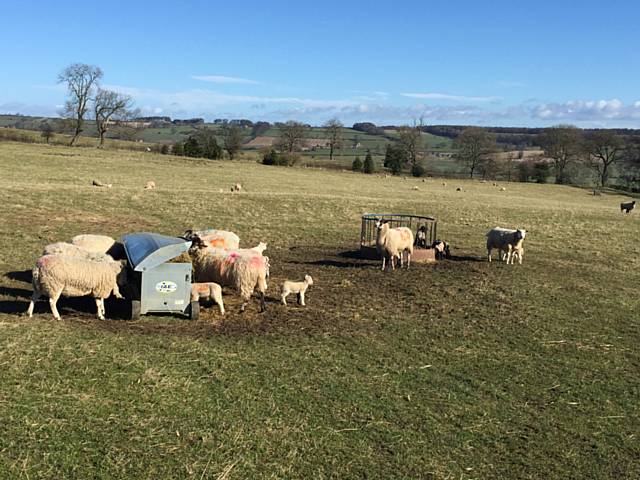Plea to keep dogs under control in the countryside
Date published: 03 March 2015

Keep your pets under control in the countryside – that’s the message to dog owners as the lambing season gets underway
Keep your pets under control in the countryside – that’s the message to dog owners from the CLA in the North as the lambing season gets underway.
The organisation, which represents thousands of farmers and landowners in the region, is urging dog owners to keep their animals either under strict control or on leads and to clean up any mess while on walks in the countryside.
During lambing season pregnant ewes can abort if they become stressed by loose dogs.
Sheep fleeing from dogs are also often killed or seriously injured by their panicked attempts to escape, causing untold damage to fences and field boundaries in the process.
CLA North Director of Policy & Public Affairs Douglas Chalmers said: “The majority of farmers and landowners welcome walkers - most people are very understanding and walk with their dogs on leads near livestock. But there are some who do not even consider doing this.
“Dogs should always be under close control when walked on farmland, and unless the dog stays closely to heel, this normally means that it should be on a lead. A lead should always be used when close to livestock unless being chased by cattle or horses when it is safer to let dogs off the lead.”
A sheep worrying survey, carried out by Farmers Guardian magazine and the National Sheep Association last year, found that dog attacks had risen by 50 percent since 2011 to more than 1,000 in 2013, costing farmers £1.2 million in lost production, repair bills and vets fees.
Mr Chalmers is also reminding dog owners to clean up their pets' mess because of a deadly parasite which can be picked up from grass infected by dog faeces.
He said: "There may be no obvious symptoms in a dog, but the effects of the parasite Neospora caninum can be devastating in cattle and there is no known treatment.
"Even if there aren't any animals visibly grazing in a field, they may do in coming weeks, or the grass may be cut and used as feed through the winter."
Neospora caninum affects mainly cattle, dogs and other animals such as foxes, although it can also affect sheep, goats, deer and horses. The parasite lives in both dogs and cattle, but only reproduces in dogs. It can be transmitted to cattle which graze on grass infected by dog faeces. Once inside a cow the parasite is deadly, often resulting in abortion or the birth of premature, impaired or infected calves.
The CLA is campaigning for the Government to provide clear guidance to dog owners setting out their responsibilities and enable better understanding of the impact their animals can have on livestock and farming practices.
Do you have a story for us?
Let us know by emailing news@rochdaleonline.co.uk
All contact will be treated in confidence.
Most Viewed News Stories
- 1Royton haulage firm fined after Rochdale dad went to work and didn’t come home
- 2Rochdale church to host Camerados public living room
- 3Unique colour and sound experience comes to Rochdale in May
- 4Suspended council candidate was ‘politically naive’ for appearing in George Galloway video, leader...
- 5Community support needed for funding bid to repair viaduct on East Lancashire Railway route
To contact the Rochdale Online news desk, email news@rochdaleonline.co.uk or visit our news submission page.
To get the latest news on your desktop or mobile, follow Rochdale Online on Twitter and Facebook.


